Footy, Aussie rules, or AFL, has experienced a remarkable surge in the last decade. The significant increase in commercial partnerships, heightened fan engagement, and lucrative broadcasting deals has brought more money into the sport and instilled a sense of pride and optimism about its future.
This financial growth has significant implications for the sport and its stakeholders, particularly the players at the game's heart. As the AFL's revenue increases, so does the potential for higher player salaries and improved facilities and resources, ultimately enhancing the overall quality of the sport.
Here, we'll examine the AFL's best earners. Still, first, we must discuss the AFL's financial situation and salary cap.
| Player | Club | 2025 Salary (AUD) |
|---|---|---|
| Tom Lynch | Richmond Tigers | $1.55 million |
| Ben McKay | Essendon Bombers | $1.3 million |
| Christian Petracca | Melbourne Demons | $1.2 million |
| Aaron Naughton | Western Bulldogs | $1.2 million |
| Shai Bolton | Fremantle Dockers | $1.1 million |
| Tim Kelly | West Coast Eagles | $1.1 million |
| Marcus Bontempelli | Western Bulldogs | $1.1 million |
| Darcy Moore | Collingwood Magpies | $1.05 million |
| Clayton Oliver | Melbourne Demons | $1.05 million |
| Patrick Cripps | Carlton Blues | $1 million |
| Isaac Heeney | Sydney Swans | $1 million |
| Zak Butters | Port Adelaide | $1 million |
| Connor Rozee | Port Adelaide | $1 million |
| Ben King | Gold Coast Suns | $1 million |
| Brodie Grundy | Sydney Swans | $1 million |

AFL's Current Financial Situation
Footy is worth so much money in part because of the broadcast deals it brings in. Seven West Media and Foxtel have secured the AFL media rights from 2025 to 2031 in a deal worth $4.5 billion. This is the biggest broadcast rights deal in the AFL's history and in Australian sporting history!
The AFL is also the biggest domestic league regarding attendance per capita. Footy rebounded strongly after the COVID-19 pandemic, and this popularity has led to commercial partnerships. These partnerships include huge brands like Toyota, Coca-Cola, Telstra, and AAMI.
Ticket sales and merchandising also help boost the league's value. Money also comes into footy from the AFL's official website and app, which can generate more money from subscriptions, advertising, and streaming.
The league shows no signs of slowing down, either. With Tasmania Football Club joining the AFL in 2028, the league will include 19 teams. AFL is also looking to expand internationally, with plans aimed at China and New Zealand, although international growth remains fairly limited.
Here are just some of the key figures for the AFL's finances:
- Broadcast Rights: $4.5 billion deal (2022–2029)
- Average Player Salary: Projected $519,000 by 2027
- Number of $1 Million Players: 19 in 2023, expected 50 by 2025
- Expanded Markets: New team in Tasmania, international growth
- Salary Cap Growth: $17.7 million by 2025
The last point is crucial as it helps explain the salaries of the league's best earners.
The AFL Salary Cap
If you're new to footy, the AFL, like many other sports, employs a salary cap. This is to ensure the fairness of the competition. This cap reduces a team's ability to buy victory by simply paying outrageous salaries, thereby maintaining the integrity of the game.
In the AFL, which has clubs across Australia with different markets, clubs spend the same amount on their players' salaries.
The cap covers all player wages and contractual payments but excludes certain specific bonuses. Additional service agreements allow marketing and promotional work for the club, which is limited to $1.267 million per club.
The salary cap is part of the Collective Bargaining Agreement (CBA) between the AFL and the AFL Players Association.
In 2023, the salary cap for each club was $15.02 million.
In 2024, the cap rose to $15.79 million.
In 2025, the cap will rise to $17.7 million.
It should be noted that clubs must spend at least 95% of the salary cap on player wages. This prevents clubs from underpaying players or avoiding recruitment and discourages clubs from purposefully being uncompetitive, especially in a good market.
The rules of footy are actually quite simple, even for newcomers, but things like these financial rules make the sport a little less welcoming for newcomers.
So, who's making the most out of the salary cap?
Patrick Cripps (Carlton Blues) – $1 million
Patrick Cripps has been a central figure for the Carlton Blues since his debut.
He plays mainly as a midfielder and excels at winning contested possessions, breaking tackles, and clearing the ball from stoppages.
He's a tall and strong midfielder, and his above-average height and weight help him to outmuscle the opposition.
His salary of around $1 million a year only places him in an estimated 10th place.
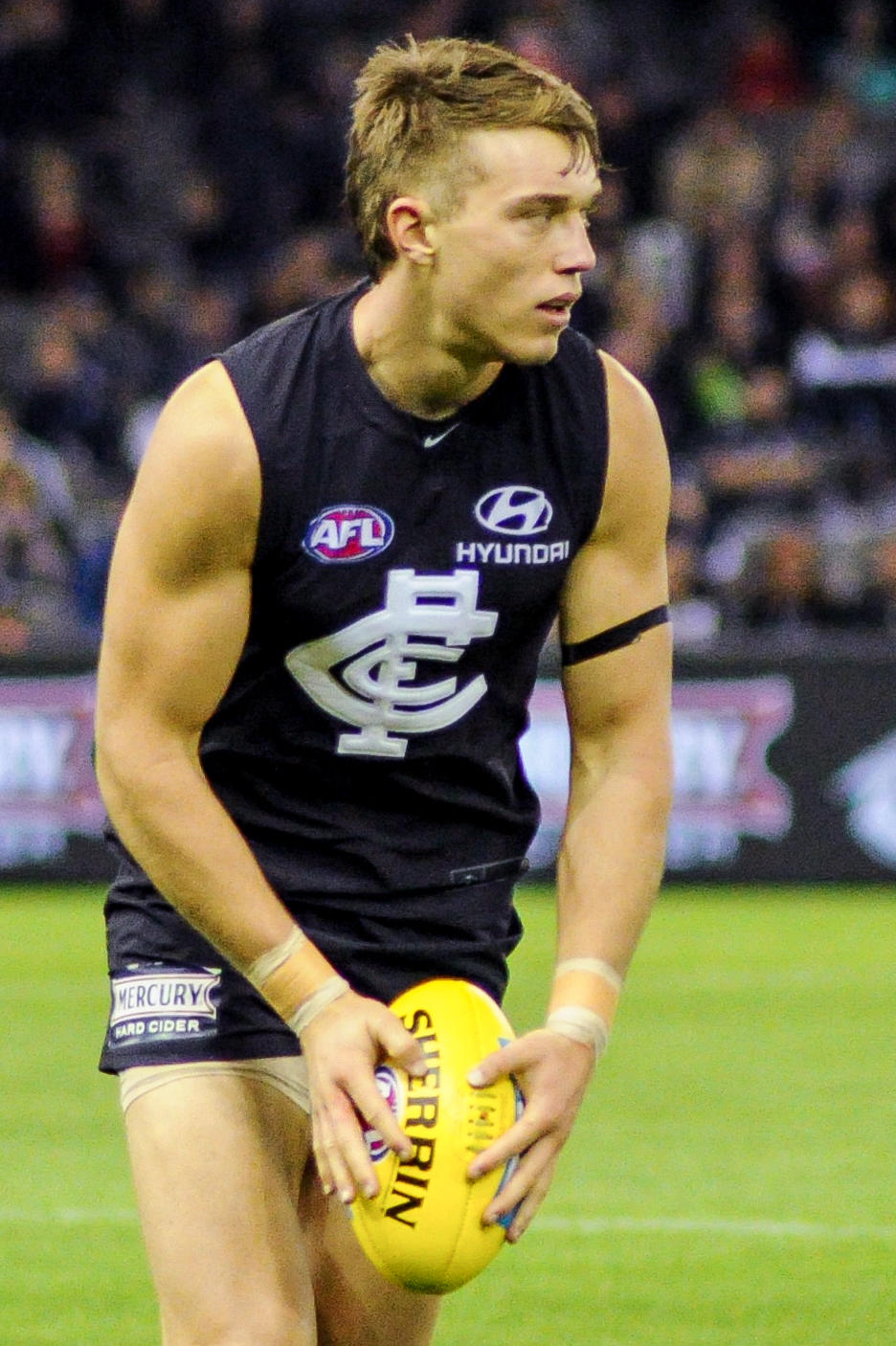
a year.
Tim Kelly (West Coast Eagles) – $1.1 million
Tim Kelly is a midfielder who plays for the West Coast Eagles. He was initially drafted by the Geelong Cats in the 2017 AFL Draft.
He debuted against Melbourne in 2018 with 27 disposals and a goal in his first game. His debut season saw him finish second in the AFL Rising Star award.
However, in 2019, he made a trade request to return to Western Australia and was traded to the West Coast Eagles.
An important player for the West Coast Eagles and one of the league's best midfielders, his salary is between $1 million and $1.1 million.
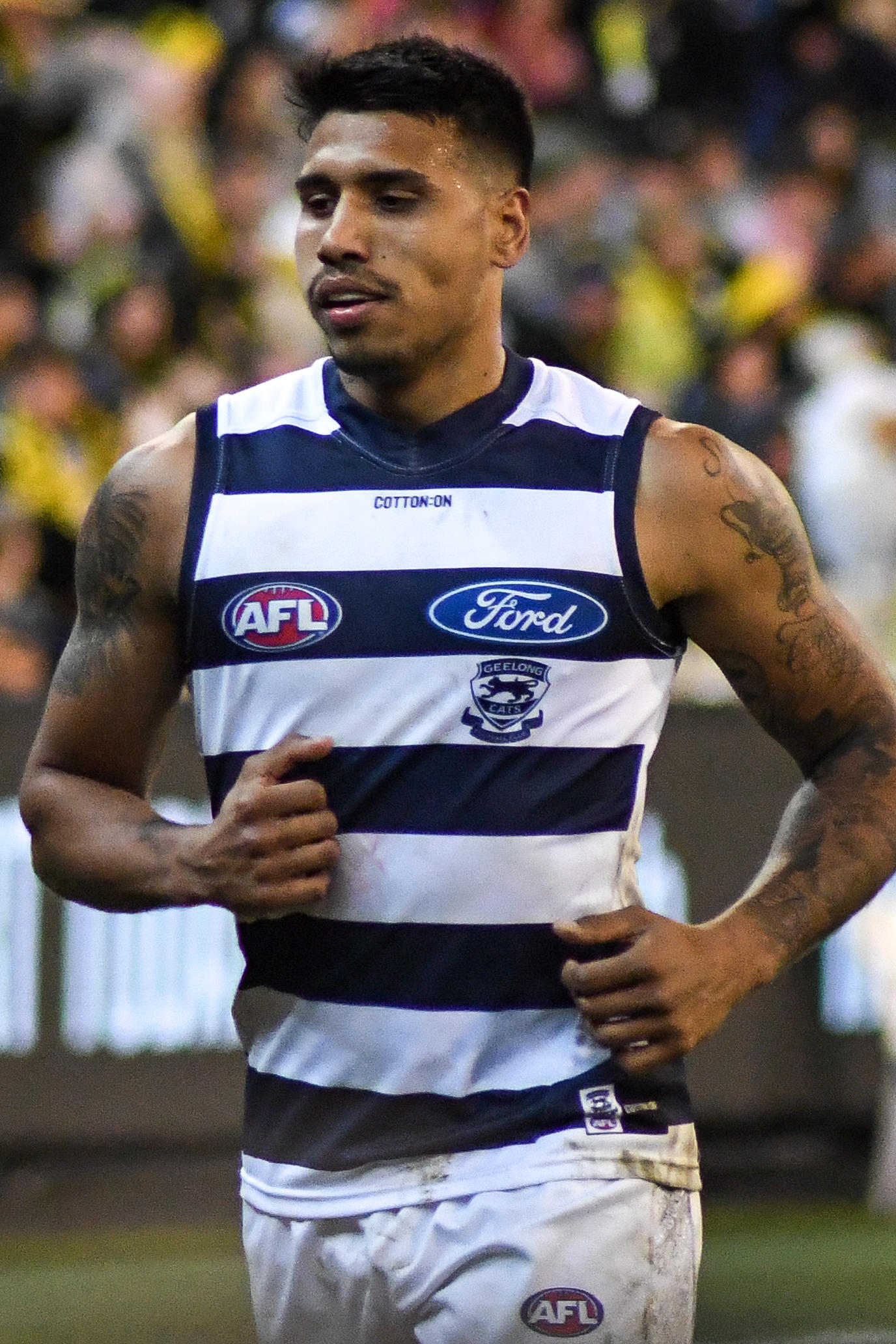
a year.
Brodie Grundy (Sydney Swans) – $1 million
Brodie Grundy is a ruckman for Sydney Swans. His athleticism, ball-winning ability, and versatility mean he's considered one of his generation's best ruckmen.
He started his AFL career at the Collingwood Magpies. He showcases his abilities by winning hit-outs, covering ground, and becoming a key player for Collingwood.
He was named to the All-Australian team in 2018 and 2019. In 2020, he signed a massive contract with Collingwood, making him one of the highest-paid players in the AFL.
At the end of the 2023 season, he was traded to Melbourne Demons. Collingwood agreed to continue paying part of Grundy's salary. However, Melbourne struggled to fit Grundy into the squad alongside Max Gawn.
Grundy was traded to Sydney Swans at the end of the 2023 season, with the Swans needing a top ruckman.
His salary is also somewhere around $1 million.
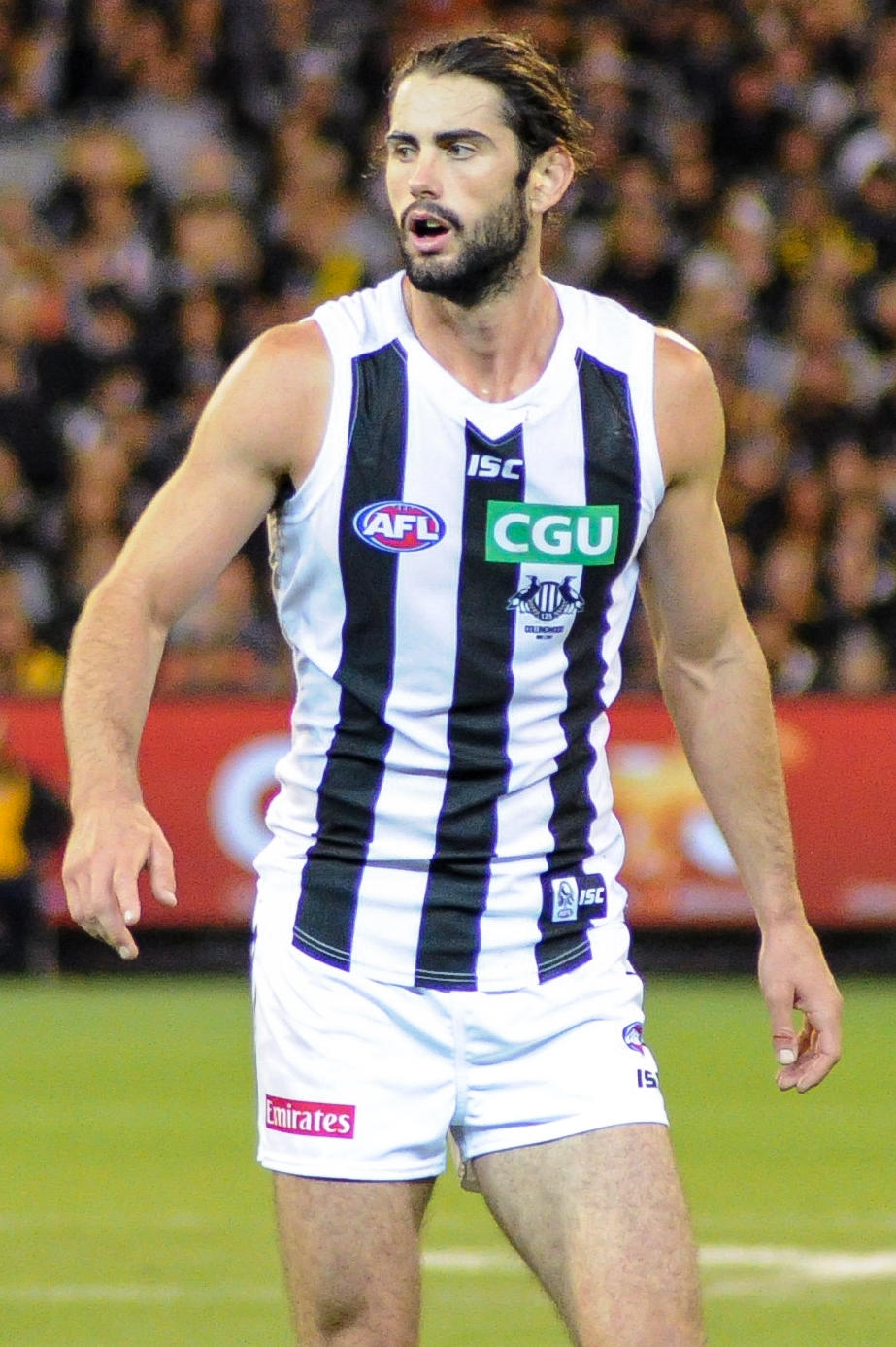
a year.
Marcus Bontempelli (Western Bulldogs) – $1.1 million
Marcus Bontempelli is one of the most famous players in the AFL. He plays for the Western Bulldogs and is considered one of the best players in the league, and his salary reflects this.
He was drafted by the Western Bulldogs in the 2013 AFL Draft. 2014 was his breakthrough season; in 2016, he won the premiership with the Bulldogs. In 2020, he was made captain of the Western Bulldogs.
His salary is somewhere around $1.1 million.
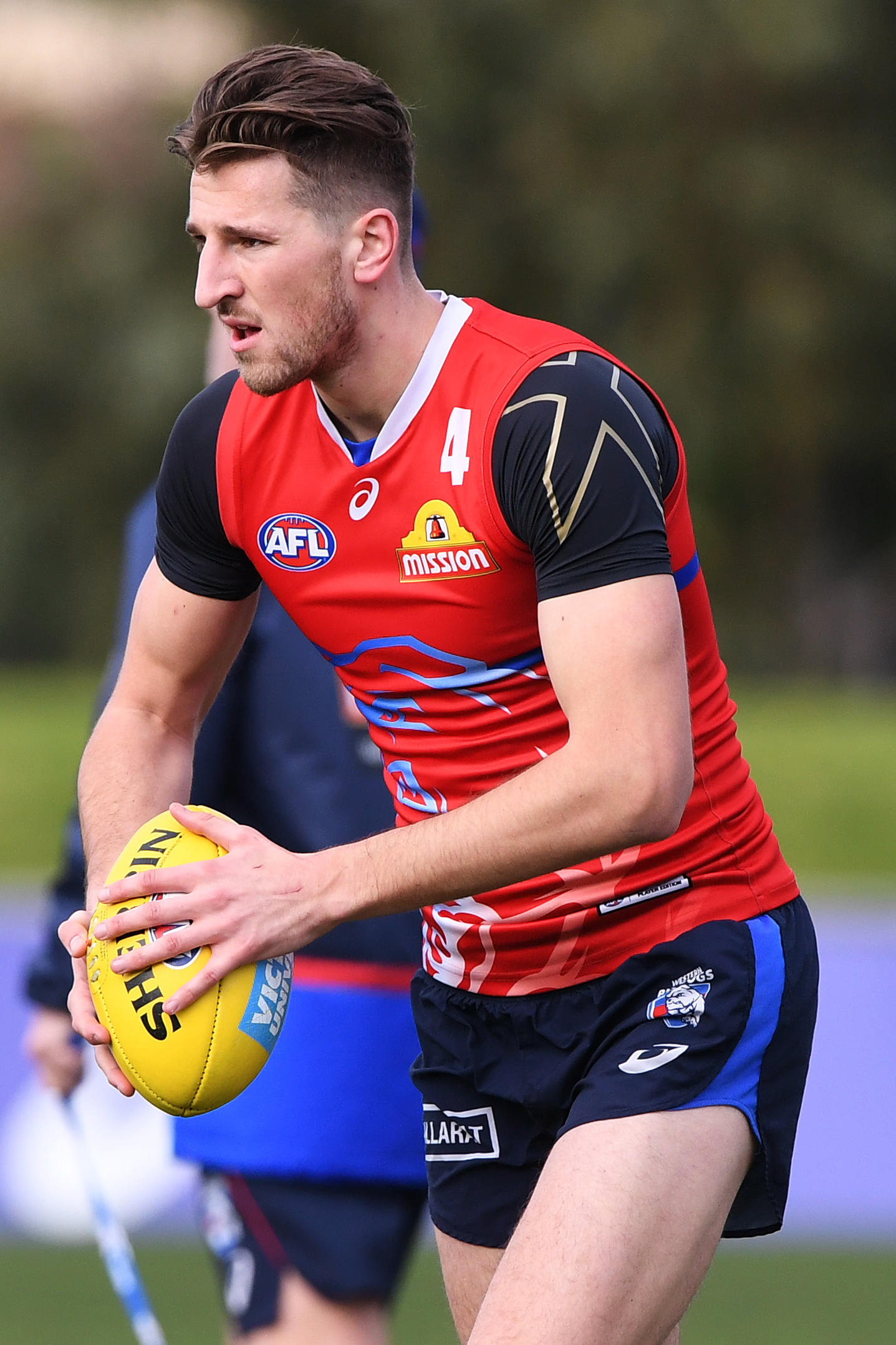
a year.
Darcy Moore (Collingwood Magpies) – $1.05 million
Darcy Moore is the captain of the Collingwood Magpies and one of the most respected defenders in the AFL. He's known for his intercept marking and his leadership in defence and played a pivotal role in the Magpies' recent successes.
His ability to read the play and command the backline has made him indispensable for Collingwood, with his $1.05 million salary reflective of how important he is to the team.
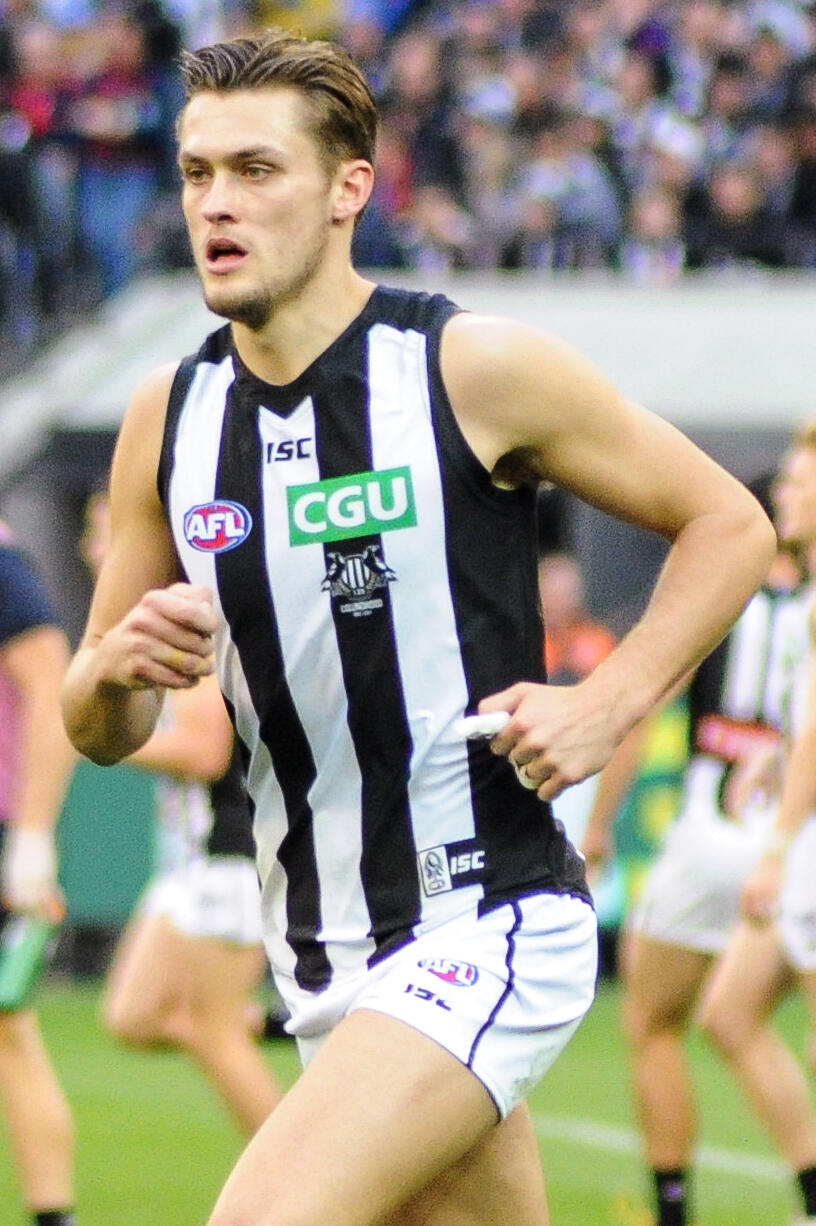
a year.
Clayton Oliver (Melbourne Demons) – $1.05 million
Clayton Oliver is a Melbourne Demons midfielder and considered one of the sport's best midfielders.
He's been part of Melbourne's recent successes, including the 2021 premiership. In 2022, he signed a seven-year contract with the club, which will keep him there until 2030.
Oliver has been named as part of the All-Australian team multiple times.
Oliver's salary is around $1.05 million.
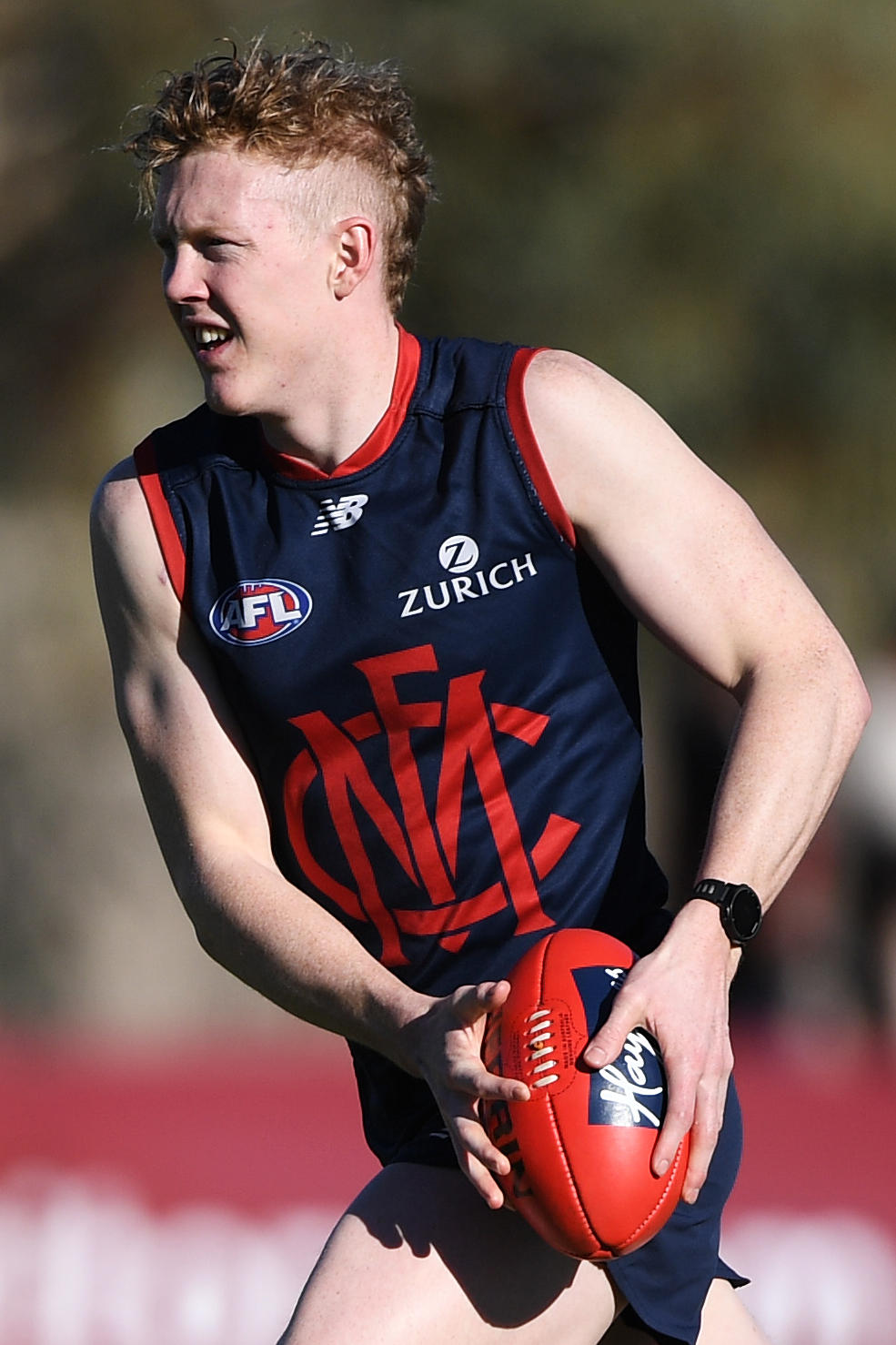
a year.

Isaac Heeney (Sydney Swans) – $1 million
Isaac Heeney is known for his spectacular marks and clutch goals. He debuted in 2015 and has since become an important player for Sydney thanks ot his goal-scoring and midfield depth.
An athletic and consistent player with great game sense, he's reportedly on a $1 million salary for the 2025 season.
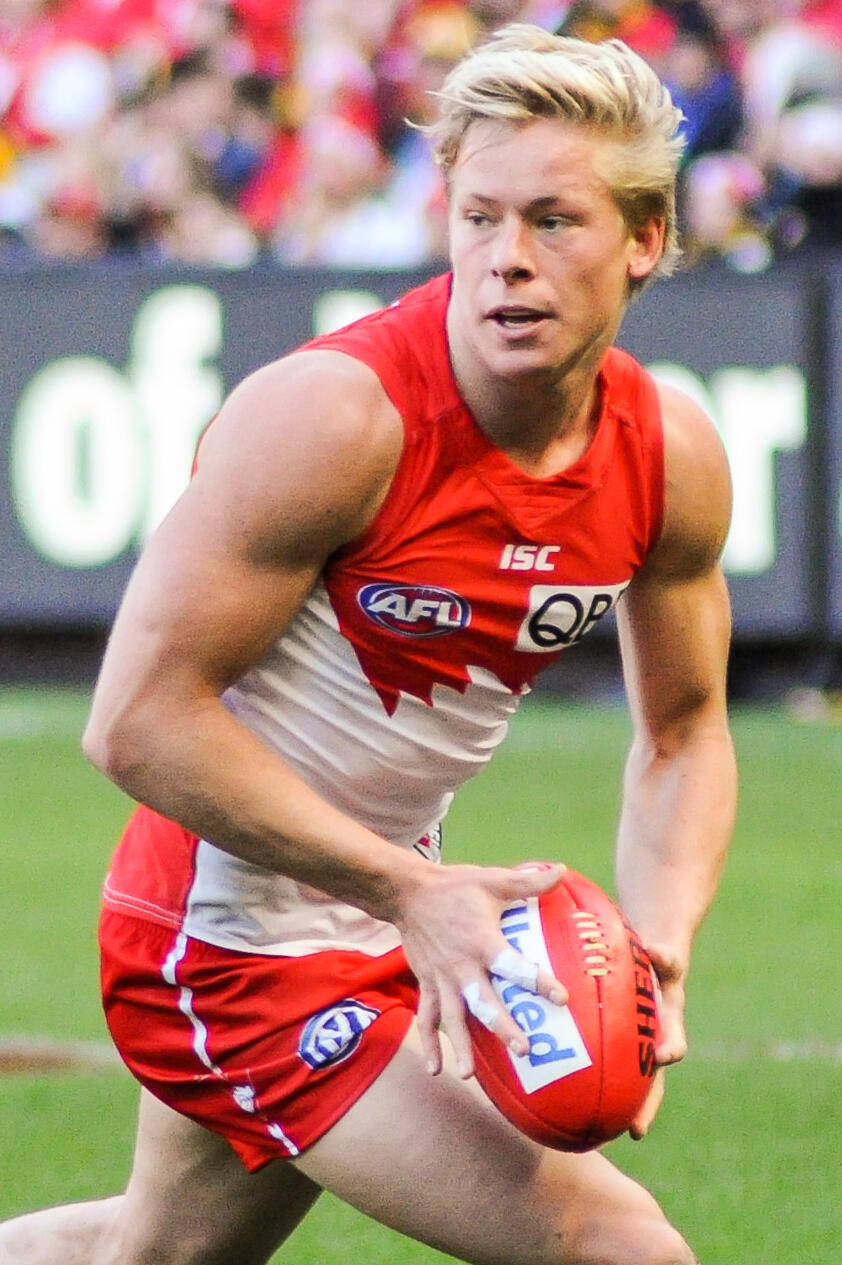
a year.
Zak Butters (Port Adelaide) – $1 million
One of Port Adelaide's brightest stars, Zak Butters' ball-handling, decision-making, and tenacity around the contest are what earn him the big bucks. He's a dynamic midfielder who's been crucial to Port Adelaide's game plan.
His performances in the last two seasons have made him a valuable player, as seen in his $1 million salary for the 2025 season.
a year.
Connor Rozee (Port Adelaide) – $1 million
Zak Butters' teammate Connor Rozee is one of the AFL's most exciting young midfielders. With all his agility and flair, he's earned himself a significant pay rise, putting his 2025 earnings at $1 million.
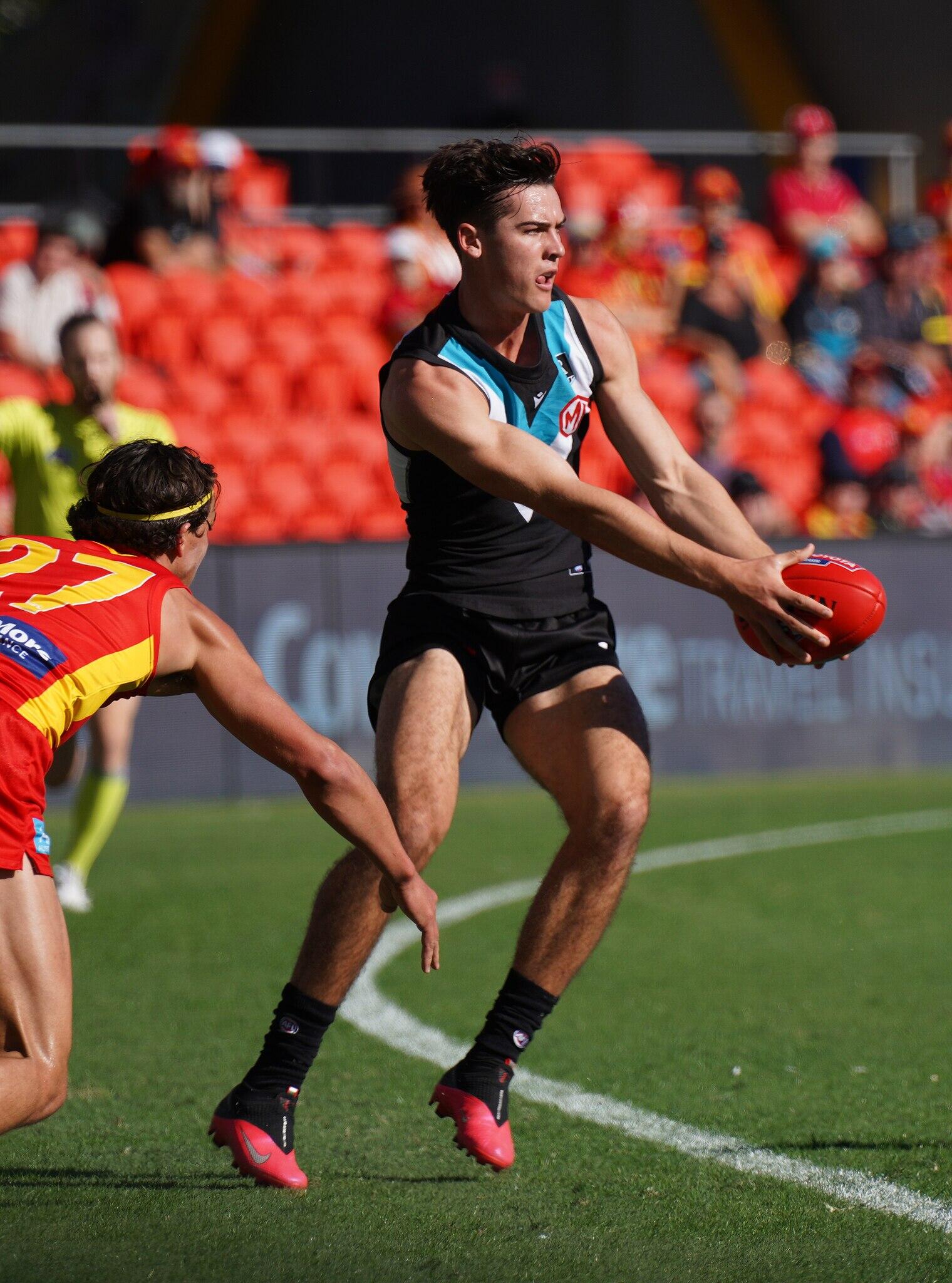
a year.
Ben King (Gold Coast Suns) – $1 million
A key forward for the Gold Coast Suns, Ben King is known for his strong marking and accurate kicking. Since being drafted, he's climbed the ranks as one of the top forwards in the league.
Though the Suns have struggled in recent years, King's performances have stood out and subsequently have been rewarded with an elevated salary.
He's reported to earn around $1 million a year.
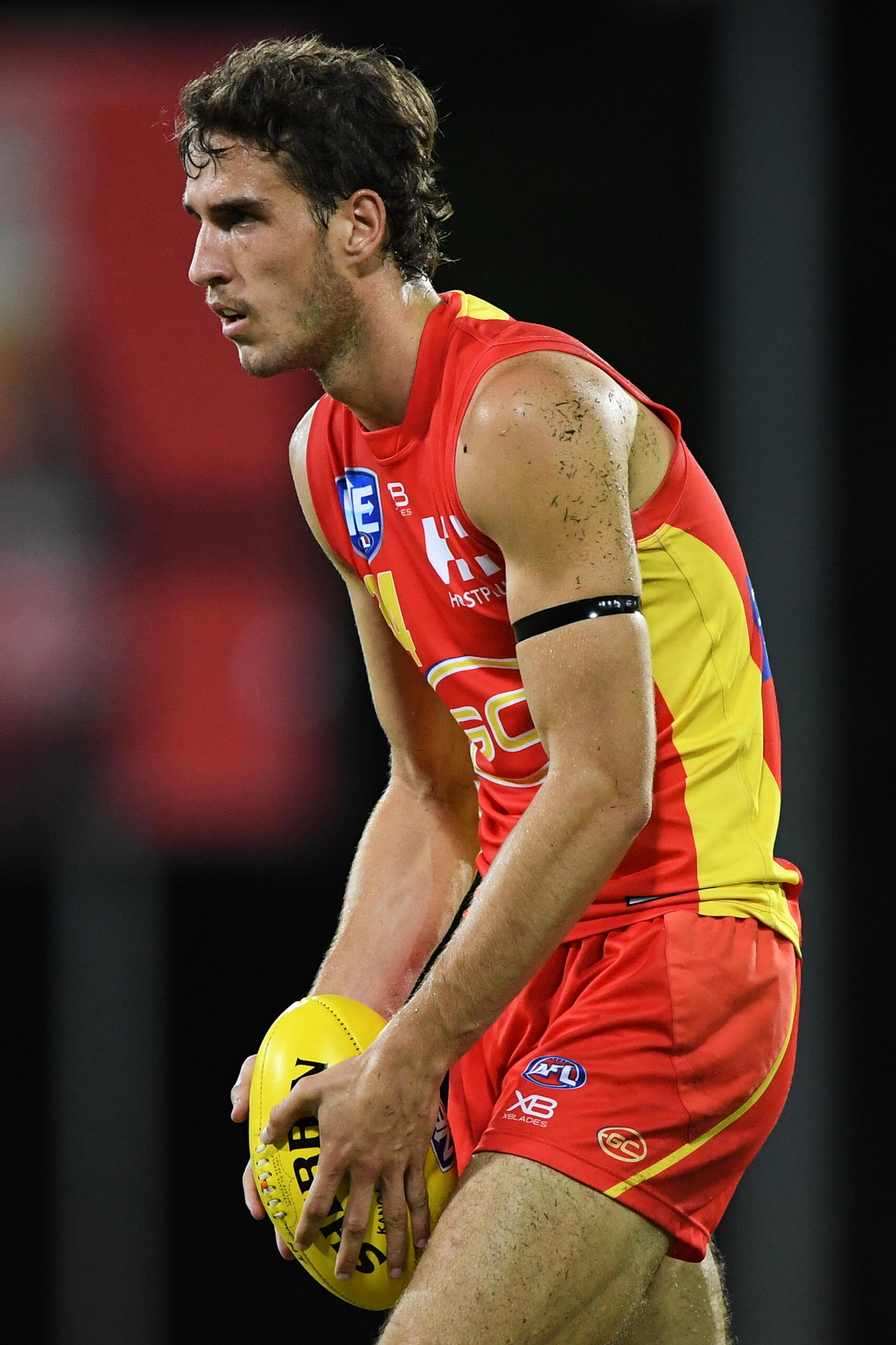
a year.
Shai Bolton (Fremantle Dockers) – $1.1 million
Shai Bolton is a midfielder and forward for the Fremantle Dockers. He debuted for Richmond in Round 9, 2017, against Greater Western Sydney.
Initially playing as a small forward, his role shifted over the seasons to the midfield. His speed and evasiveness made him a promising player, but he wasn't as consistent as he could be.
His breakout season was in 2020, playing a key role in Richmond's premiership-winning campaign. He's the only player of Aboriginal descent among the top earners.
Shai Bolton's salary is estimated to be between $1.1 million.
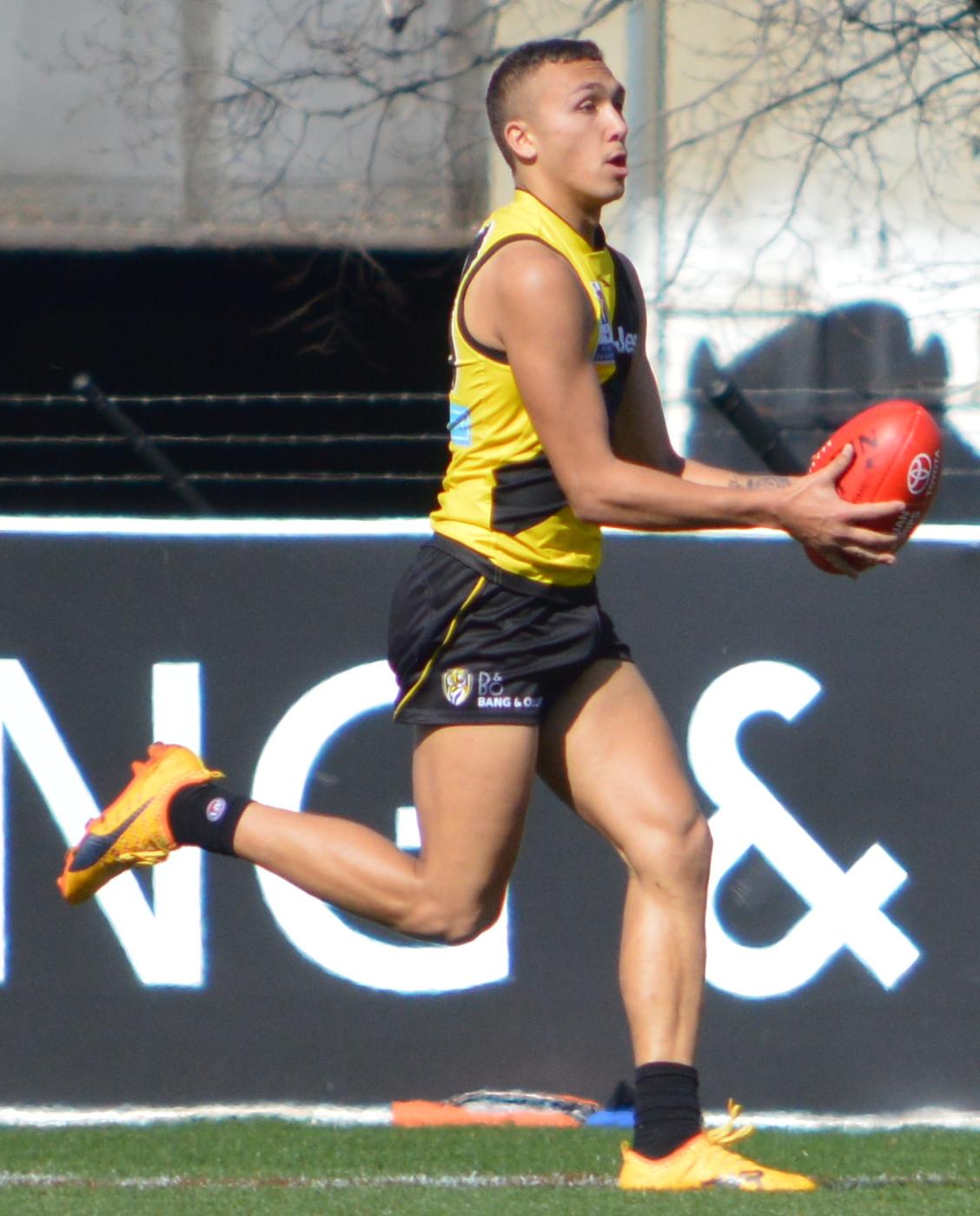
a year.
Aaron Naughton (Western Bulldogs) - $1.2 million
Aaron Naughton has firmly established himself as one of the key forwards in the AFL. His physicality and athleticism make him a constant threat.
Given his consistent performance in the last few seasons, he's been given a contract upgrade, placing him among the league's highest earners.
His reported salary for the 2025 season is $1.2 million.
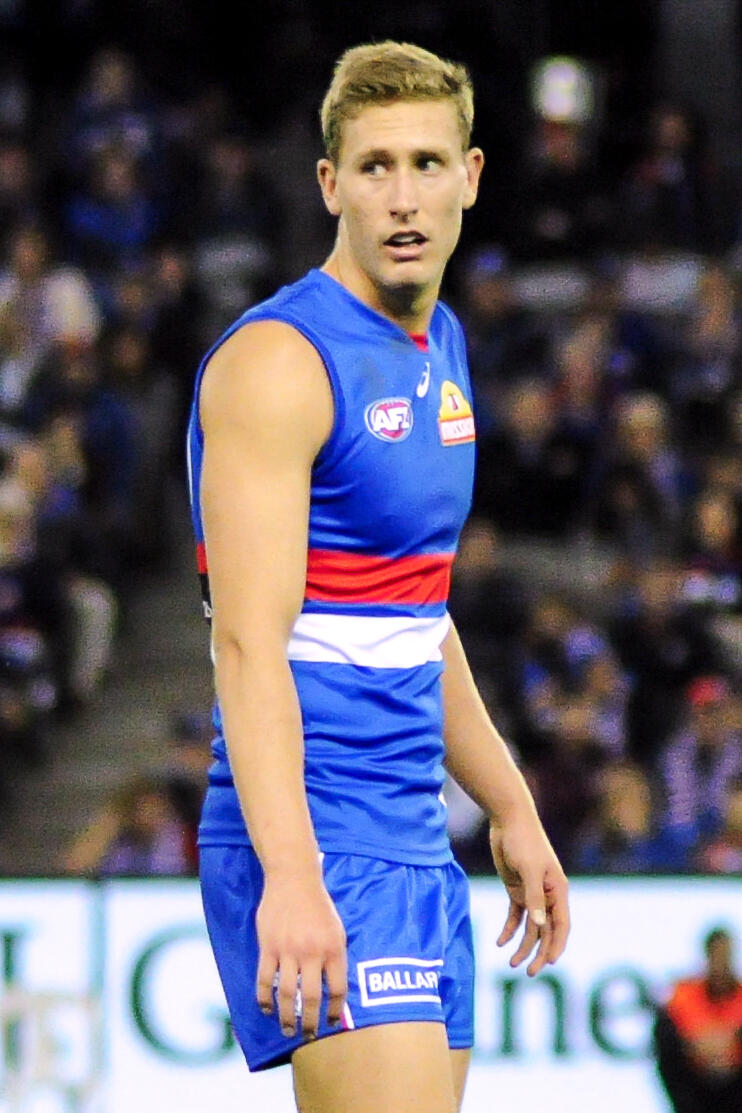
a year.
Christian Petracca (Melbourne Demons) – $1.2 million
Christian Petracca was part of Melbourne's premiership win in 2021. In the final, he collected 39 disposals and kicked two goals, a record for most disposals in a Grand Final (joint with Simon Black's 39 in 2003).
He signed a seven-year contract extension with Melbourne in 2021. This extension runs until 2029 and is estimated to be between $1.2 and $1.3 million annually.
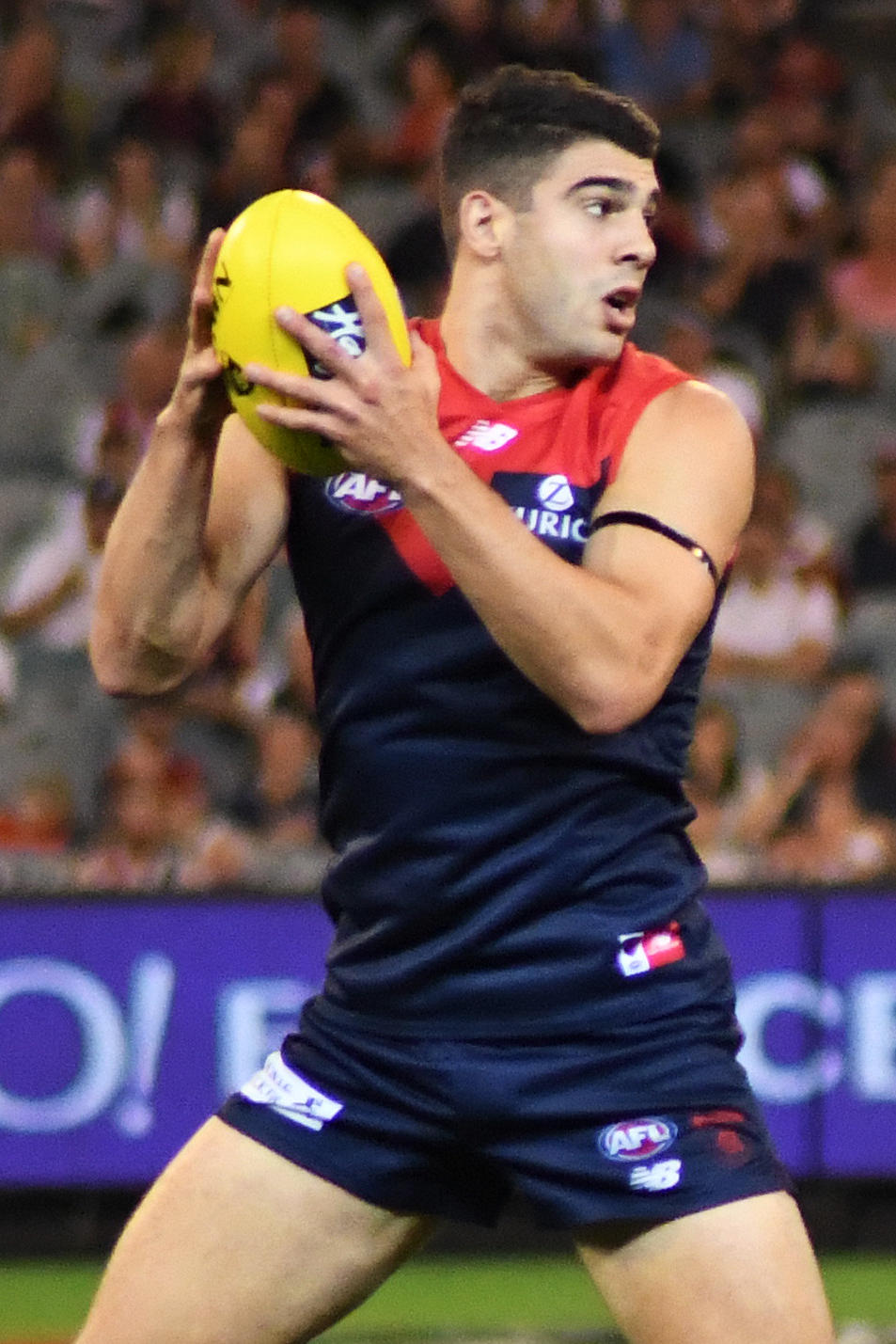
a year.
Ben McKay (Essendon Bombers) – $1.3 million
Ben McKay is a key defender who plays for the Essendon Bombers. He debuted for North Melbourne in 2017 and became one of the league's key tall defenders.
In 2024, he made a huge move to Essendon as a restricted free agent, making it one of the biggest moves during the trade period.
The move came with a lucrative contract that made him one of the highest-paid players in the AFL. The long-term contract is estimated to be between $1.3 million and $1.4 million yearly. With the kinds of salaries these players are on, don't be surprised it they end up considered among the greatest ever AFL players when they retire.
a year.
Tom Lynch (Richmond Tigers) – $1.45 million – $1.55 million
Tom Lynch is a key forward who plays for the Richmond Tigers. He started his career with the Gold Coast Suns and was among the club's most important players.
He spent eight seasons with the Suns but moved to Richmond as a restricted free agent in 2019. Since then, he's played for Richmond, winning the premiership with the Tigers in 2019 and 2020.
He signed a seven-year deal with Richmond in 2018, and with a deal reported to be between $1.45 million and $1.55 million a year, he'll be the highest-paid player in the AFL in 2025.
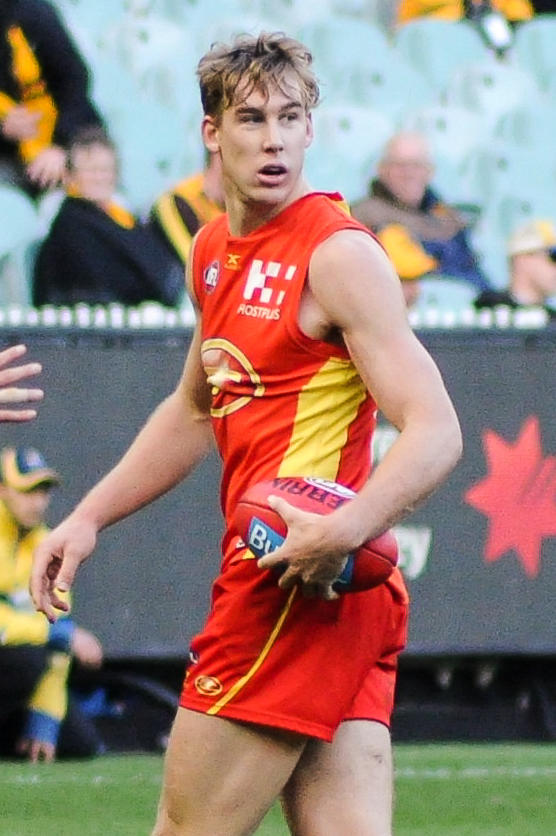
a year.
Summarise with AI:

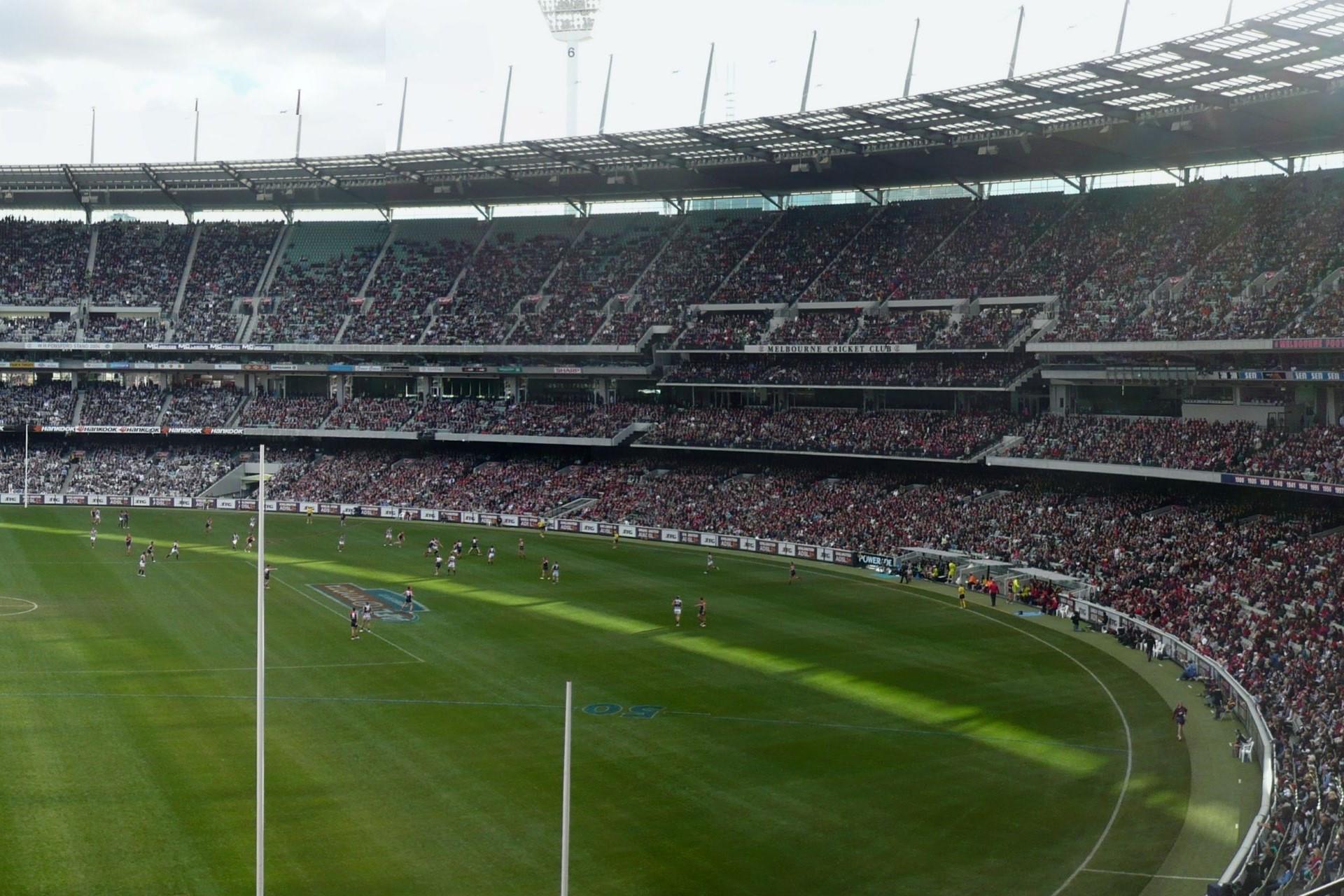




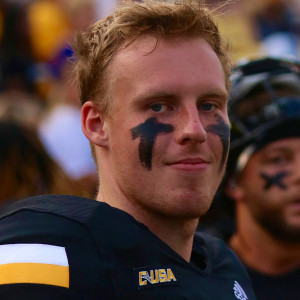









If players are earning these kinds of dollars what are coaches and all the other support people attached to all the clubs.
Not impressed reading these figures when every STATE has massive shortages in hospitals and Health areas….its okay to say thats not responsibilty for Sports….but we are basically a third world Nation trying to live like a nation worth billions….but take a good look at the actual Size of this island. .it doesnt balance financially…eg housing problem….how many of AFL CONNECTIONS OWN RENTAL PROPERTIES AS NEG.GEARED INVESTMENTS MEANING THEY ARE NOT PAYING TRUE INCOME TAX ON MILLION DOLLAR SALARIES